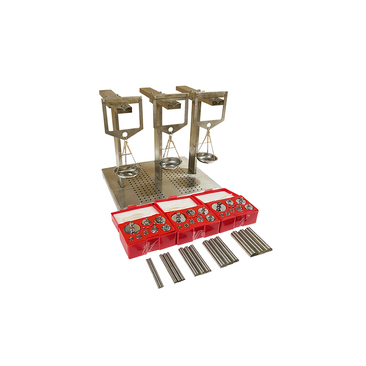Tensile Strength Tester for Evaluating Material Break Strength in Manufacturing Processes
Understanding Tensile Testers for Break Strength A Comprehensive Guide
In manufacturing and material science, understanding the mechanical properties of materials is paramount to ensuring product quality and performance. One of the key parameters that engineers and quality control professionals often need to measure is the break strength of a material. Tensile testers play a crucial role in this process, facilitating the evaluation of break strength through precise and controlled testing procedures. In this article, we will delve deeper into the functionality, importance, and applications of tensile testers in assessing break strength.
What is a Tensile Tester?
A tensile tester, also known as a universal testing machine (UTM), is a mechanical apparatus used to measure the tensile strength, elongation, and other properties of materials under tension. This machine exerts a pulling force on a specimen until it breaks, providing critical data about how the material behaves under stress. The results obtained from tensile testing can help designers and engineers select appropriate materials for their applications, ensuring safety and reliability.
Importance of Break Strength Testing
Break strength is defined as the maximum stress a material can withstand while being stretched or pulled before failing or breaking. Measuring this property is essential for several reasons
1. Material Selection By understanding the break strength of various materials, engineers can make informed decisions when selecting materials for specific applications, ensuring that they meet the required safety and performance standards.
2. Quality Control Regular testing helps in maintaining the quality of materials during the production process. It ensures that any material that doesn’t meet the necessary strength standards is identified and rejected before reaching the end-user.
3. Product Design Engineers can optimize product design by knowing the break strength of the materials involved. This information allows them to minimize material usage while ensuring that products can withstand real-world conditions, potentially resulting in lighter and more cost-effective solutions.
4. Compliance with Standards Many industries are governed by strict regulations, requiring materials and products to meet specific strength criteria. Tensile testers help companies comply with these industry standards, ensuring that they pass inspections without issues.
How Tensile Testing Works
The tensile testing process typically involves a series of steps
tensile tester for break strength factory

2. Mounting The samples are securely mounted in the tensile tester, which has grips designed to hold the material firmly without causing premature failure.
3. Applying the Load The machine applies a tensile load gradually and continuously until the sample breaks. During this process, the machine records the stress (force per unit area) and strain (deformation) data in real-time.
4. Data Analysis Once the sample fails, the tensile tester provides comprehensive data, including the maximum load sustained, the point of failure, and the material's elongation before breaking. This data is then analyzed to determine the break strength and other relevant mechanical properties.
Types of Materials Tested
Tensile testers can evaluate a wide variety of materials, including
- Metals From steel to aluminum alloys, tensile testing can help in understanding the mechanical behavior of metals used in construction, automotive, and aerospace industries.
- Plastics Various grades of plastics, including thermoplastics and thermosetting plastics, can be subjected to tensile testing to gauge their suitability for specific applications.
- Textiles In the textile industry, tensile testing is essential for determining the strength and durability of fabrics, ensuring they meet consumer demands.
- Composites With the growing use of composite materials in industries like aerospace and automotive, testing their tensile and break strength has become increasingly important.
Conclusion
Tensile testers play a vital role in ensuring that materials meet the required break strength for their intended applications. By providing valuable data on a material's mechanical properties, these testing machines help engineers make informed decisions regarding material selection, product design, and production quality. As technology advances, tensile testers continue to evolve, offering more precise and efficient solutions for material testing, ensuring safety and reliability in various industries. Whether you’re a manufacturer, engineer, or quality control professional, understanding and utilizing tensile testing is essential to achieving high standards in material performance.
-
Reliable Performance Testing with Advanced Aging Chamber Solutions
NewsAug.23,2025
-
Advancing Precision with Profile Projector Technology
NewsAug.23,2025
-
UV-LED Ultraviolet Crosslinking Technology: Innovation and Prospects
NewsAug.23,2025
-
Ensuring Safety and Compliance
NewsAug.23,2025
-
Electrical Properties Testing in Modern Applications
NewsAug.23,2025
-
Universal Tensile Testing Machine Applications in Modern Electrical and Material Testing
NewsAug.23,2025
 Copyright © 2025 Hebei Fangyuan Instrument & Equipment Co.,Ltd. All Rights Reserved. Sitemap | Privacy Policy
Copyright © 2025 Hebei Fangyuan Instrument & Equipment Co.,Ltd. All Rights Reserved. Sitemap | Privacy Policy

